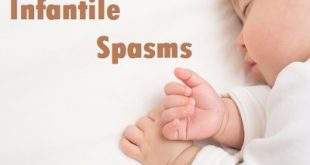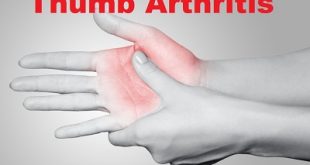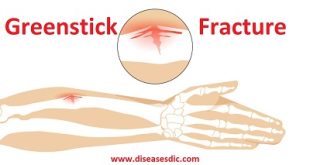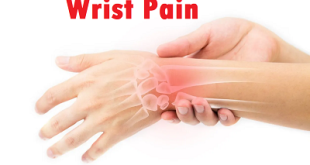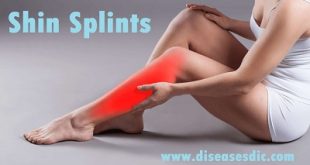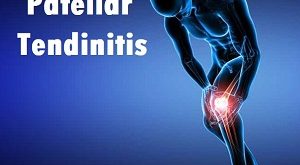What is Irritable Hip?
All the freely movable joints of the body have a lubricating lining called the synovial membrane. Irritable hip occurs when the membrane becomes inflamed for a short period of time (otherwise known as ‘transient synovitis’). The inflammation causes pain. The synovial membrane produces more than its usual thin film of lubricating fluid when it is inflamed and this can result in more pain in the joint. Irritable hip occurs in children (usually aged between 3 and 10 years) and is more common in boys than girls.
Risk factors and causes of Irritable Hip?
Irritable Hip (also known as Transient Synovitis and Toxic Synovitis) is a common cause of hip pain and limping in children. Doctors don’t know its exact cause, but some kids develop it after having a viral infection (such as a cold or diarrhea). Because of this, some doctors think that toxic synovitis is caused by substances made by the body’s immune system to fight the infection.
Toxic synovitis can happen at any age, but is most common in kids between 3 and 8 years old. It’s also more common in boys.
Sometimes toxic synovitis can be confused with septic arthritis, or infectious arthritis, a more serious condition caused by a bacterial infection that invades the joints and can cause long-term joint damage. Doctors can rule out septic arthritis or other conditions through a physical exam and diagnostic tests.
What are the symptoms of Irritable Hip in children?
Your children may start to walk with a limp, or experience trouble walking, standing or crawling. You should take your child to a consultant if they:
- Develop a fever or is otherwise unwell
- Develop an obvious swelling or redness on any part of the hip or leg
- Have increasing or persistent pain that is not relieved by ibuprofen or paracetamol
- Are in pain when they are at rest
- Are not starting to improve within three days or has not recovered fully in two weeks
What are the complications associated with Irritable Hip?
Although this condition is rarely serious, you should call your child’s doctor if:
- The fever or pain becomes worse even after taking anti-inflammatory medication
- The joint pain lasts longer than three weeks or comes back after your child stops taking medication
- The anti-inflammatory medication doesn’t start working within a few days
In these cases, your child’s doctor might need to prescribe a different medication or perform additional tests to check for other causes of hip pain.
How is Irritable Hip diagnosed?
Ruling out other conditions
Irritable Hip can be difficult to diagnose. Other conditions that are much more serious can also cause hip pain. Since these conditions require prompt medical treatment, your child’s doctor must first test for them before making a toxic synovitis diagnosis. These include the following:
- Septic arthritis, a bacterial or fungal infection that results in joint inflammation and can lead to permanent joint damage if left untreated
- Legg-Calve-Perthes disease, a condition marked by insufficient blood flow to the hip joint, which leads to the collapse of the joint as the bone dies
- Lyme disease, a bacterial infection caused by tick bites that can result in long-term joint problems if left untreated
- Slipped capital femoral epiphysis (SCFE), which occurs when the ball of the hip joint and the thighbone (femur) separate, leading to a joint disorder called osteoarthritis later in life
Diagnosing Irritable Hip
Your child’s doctor will perform a physical exam to find out which movements are causing pain. This involves moving your child’s hips, knees, and other joints.
Your doctor might order an ultrasound of your child’s hip to check for fluid in the joint, which is a sign of inflammation.
Blood tests can show how severe the swelling is. Your child’s doctor might also check for other causes of hip pain, such as Lyme disease. They might remove a fluid sample and send it to a lab for testing. This is usually done when the swelling or fever is serious and septic arthritis hasn’t been ruled out.
Your child’s doctor might take X-rays to rule out Legg-Calve-Perthes disease or SCFE.
What is the treatment for irritable hip?
Most children with irritable hip can be treated at home using a combination of painkillers and bed rest.
Painkillers: The non-steroidal anti-inflammatory drug (NSAID) called ibuprofen is the painkiller that’s usually recommended to treat hip pain. Ibuprofen should help to relieve pain, reduce inflammation and speed up your child’s recovery. Aspirin is not given to children who are under 16 years old because it can trigger a serious condition called Reye’s syndrome, which can cause brain and liver damage. Massaging the affected hip and applying heat may also help to reduce the child’s hip pain.
Bed rest: Bed rest is recommended until the symptoms of pain resolve, which usually takes around 7 to 10 days.
Hospital admission: The child may be admitted to hospital if diagnosis is uncertain or painkillers and bed rest haven’t eased the pain. Further tests may be given to rule out an infection inside the hip joint (septic arthritis).
These tests may include:
- Magnetic resonance imaging (MRI) scan to build-up an image of the inside of the joint
- Removing a sample of fluid from the affected joint and checking it for infection
- Septic arthritis can be treated by taking antibiotics and by draining the infected fluid out of the joint.
Recovery
It usually takes a fortnight to recover from irritable hip, although your doctor may recommend that the child does not play sport or take part in any strenuous activities for at least another two weeks following treatment. This is to reduce the chance of irritable hip returning. Swimming is a good way to strengthen the joint and get it moving again.
Care at home
Irritable hip is a mild condition that will get better on its own. Complete rest is usually all that is needed. It should start to improve in about three days and be better in two weeks.
Non-steroidal anti-inflammatory drugs (NSAIDs), such as ibuprofen, are helpful for irritable hip as they relieve the pain as well as reducing inflammation. Give the ibuprofen according to packet directions regularly for 48 hours. Paracetamol may also help with reducing the pain. Never give aspirin to children under the age of 12. See our fact sheet Pain relief for children.
Antibiotics are not given as the condition is not caused by a bacterial infection.
While your child is recovering:
- It is important to encourage your child to rest at home. They will naturally sit, crawl, walk or lie in the most comfortable position.
- Allow your child to gradually go back to their usual activities as they improve, but they should not play sport or undertake any strenuous activities until they are completely better.
How can it be prevented?
Usually toxic synovitis is not preventable, except by avoiding the viral infections that can trigger it.
 Diseases Treatments Dictionary This is complete solution to read all diseases treatments Which covers Prevention, Causes, Symptoms, Medical Terms, Drugs, Prescription, Natural Remedies with cures and Treatments. Most of the common diseases were listed in names, split with categories.
Diseases Treatments Dictionary This is complete solution to read all diseases treatments Which covers Prevention, Causes, Symptoms, Medical Terms, Drugs, Prescription, Natural Remedies with cures and Treatments. Most of the common diseases were listed in names, split with categories.

